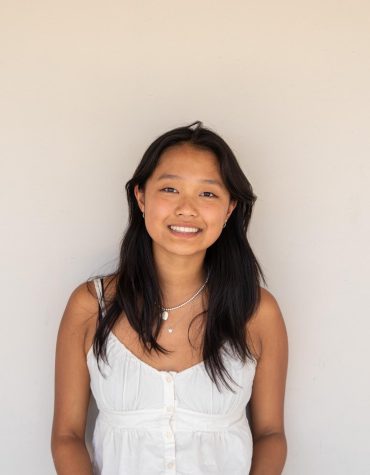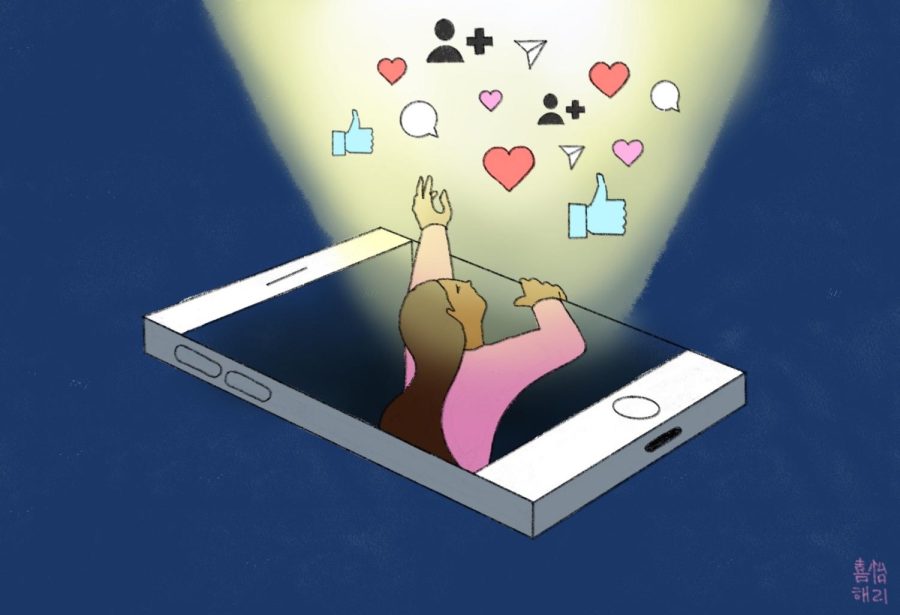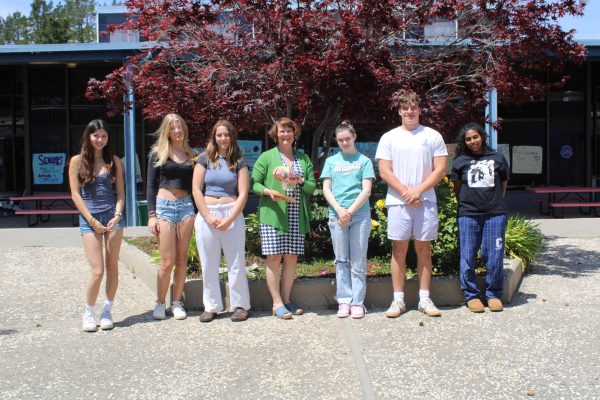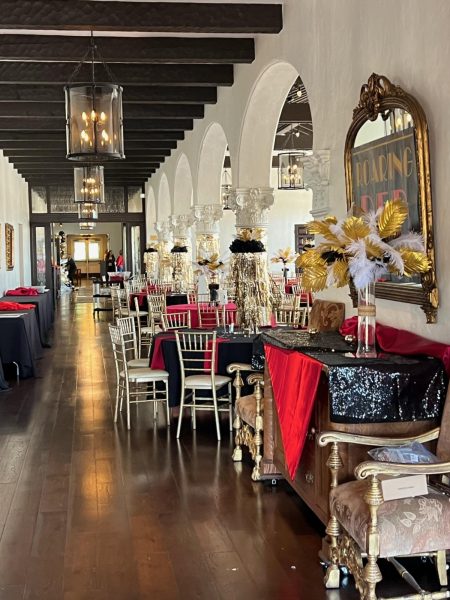Students Challenged to Delete Social Medias
Haelee Chung
Students participated in a week-long social media challenge to eliminate the negative effects of screen time.
AP Psychology students participated in a “Social Media Challenge” during the week of February 1 for those taught by Diane Bessette, and the week of February 8 for those taught by Steven Dyer. This required students to give up any social media platforms that they usually engage in, including Instagram, Snapchat, TikTok, and YouTube, for 4 days. Students were also instructed to journal each day and write a final reflection.
In assigning this challenge, originally introduced to Campo by former AP Psychology teacher Matthew Bostick, Bessette said, “It’s an opportunity for [students] to examine their use of social media and take into account a lot of the psychology that we’ve learned.” This includes relating their experiences to theories of emotion, motivation, and cognition.
In general, Bessette believes that people spend too much time on social media. “…[Social media] can adversely affect their emotions and their sleep and their ability to focus,” she said. “[It’s good to have] an assignment where at least students have the opportunity to be aware of [their social media use] and be aware of how [that] could affect them and [how they] make decisions for themselves.”
According to junior Adrian Blumberg, he spends on average around 2 to 3 hours a day on Youtube, Snapchat, and Instagram. According to a report by Common Sense Media, however, teens can spend up to around an average of 7 hours per day on non school-related entertainment.
Blumberg described social media apps as having a “social lure,” with that effect being 1 of the primary reasons so many people are attracted to it. “…Being able to snap people and communicate with people [and] giving that up… was pretty tough,” he said.
Junior Madeleine Maestre admitted to being “addicted” to her social media, making scrolling an unconscious habit. “I would just open my phone and automatically go for the app without actually consciously thinking, ‘Oh, I want to go into Snapchat,’” she said.
Blumberg also commented on the strategies people used to stay off social media during the challenge. These included deleting the apps off their phones or just moving them away from their usual spots on their phone screens.
With the extra time off of social media, Blumberg also found that he was more efficient with his time. “…Going on social media and procrastinating…I saw that [had] changed for me. And so for me, I was able to get my homework done earlier. I was able to do more of the small things. I was able to talk with my family more. I was able to read and I was really able to enjoy my time with friends as well. And I just had a lot more constructive conversations. I’d say that they weren’t limited by time, you know, which they often are.”
Maestre also found herself more productive. “I spent more time doing homework and also [spent more] time with my family. So time that I would have spent scrolling through TikTok, I watched a movie with my family instead,” she said.
“It’s really the connections that you make in real life that are really the ones that matter,” said Blumberg. “So realistically, if I were to give up social media permanently, it really wouldn’t affect my social life as much as I originally thought it would. …Other than that, I also just realize how much time it takes up and how much more efficient and really happy you can be if you give up social media even for just a short amount of time,” he added.
Bessette added that “almost universally, people say that they enjoy doing the project, that it made them think that they got more sleep, [and that] they felt less anxious. And some of them said they were going to continue with either limiting or eliminating some aspects of social media.”
Blumberg agreed with this, and speculates that he will continue limiting his social media use. “To be honest with myself, I would have to be motivated by something. I’d have to plan in advance because it’s obviously really hard… If I’m really [stressed about] schoolwork or I’ve got a lot going on, then there’s a good chance I’ll consider it and I think what I’ll probably do is…ask a friend if they want to join me. But yeah, I think I’ll definitely think about implementing it in the future.”
Maestre also believes she will commit to taking more breaks from social media in the future as a result of this project. “I have not redownloaded TikTok because I’ve spent so much time on it. I [did] redownload Snapchat and Instagram, but I’m definitely more mindful of my usage and have [limited myself].”
Blumberg’s advice to others interested in taking a break from social media is that “…for anyone out there, [who has] maybe heard about this project and is interested, I’d say just do it. And it’s definitely hard, you know, to do it yourself without an entire class. But it is so worth it and you will learn a lot about yourself as well.”
Your donation will support the student journalists of Campolindo High School's The Claw. Your contribution will allow us to produce more issues and cover our annual website hosting costs.

Senior Yasmine Chang spends her free time writing short stories and poetry, drawing on her love of reading and music.
Chang gains inspiration from these...




